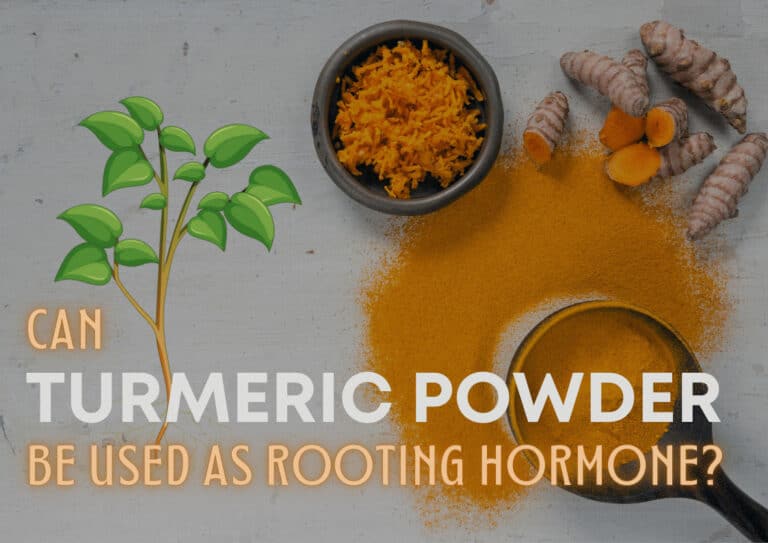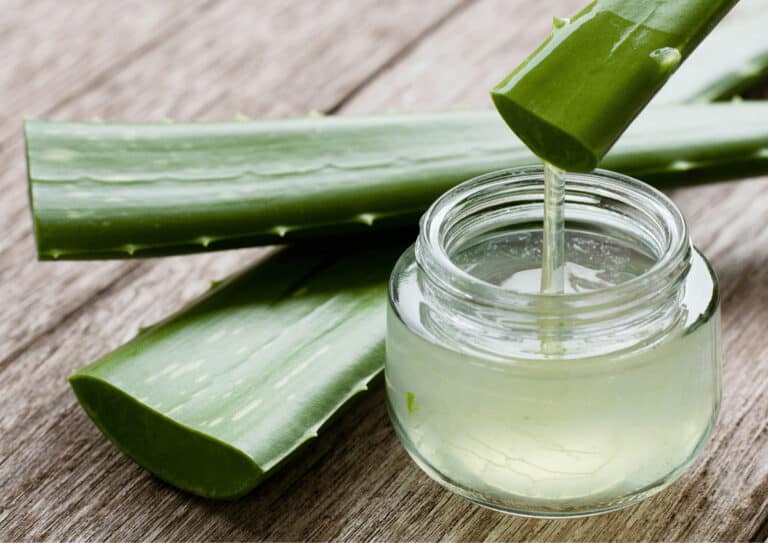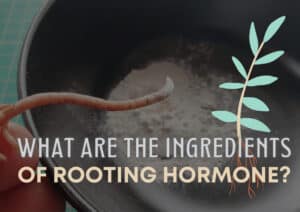Can Turmeric Powder Be Used As Rooting Hormone? Exploring The Facts
- Chris Dosser with the assistance of A.I. technology
- April 15, 2023
If you buy something using the retail links in our articles, sometimes we earn a small affiliate commission. This does not impact the products we recommend.
Rooting hormones are essential for successful plant propagation, and many gardeners seek natural alternatives to commercial products. One such alternative that has gained attention is the use of turmeric powder. As an easily accessible and cost-effective option, turmeric raises the question: can it be used as a rooting hormone?
Although turmeric is not a traditional rooting hormone, it has been used by some gardeners to increase the chances of rooting plant cuttings. Turmeric is known for its antifungal and antibacterial properties, which can benefit the cuttings by protecting them from infection and decay during the rooting process. However, the effectiveness of turmeric as a rooting hormone is still a subject of discussion and is not universally accepted.
In addition to turmeric, other natural substances like aloe vera gel, cinnamon powder, honey, and willow juice have been utilized by organic gardeners as rooting agents. These substances are often treated as rooting hormones in organic gardening circles. While they may not possess the same strength as commercial rooting hormones, they serve as more sustainable and eco-friendly options for those looking to propagate plants without synthetic chemicals.

Using Turmeric Powder as a Rooting Hormone
Turmeric powder can be used as a natural alternative to chemical rooting hormones when propagating plant cuttings. Though not technically a rooting hormone, turmeric can help increase the chances of successful root development.
Procedure
- Prepare the plant cutting by removing the lower leaves, leaving only the top ones, and trimming the stem at an angle.
- Dip the cut end of the stem into a small amount of water to moisten it.
- Gently roll the moistened stem’s cut end in turmeric powder, ensuring it is fully covered.
- Plant the cutting into a well-draining soil mix or a prepared growing medium, and water well.
- Keep the cutting in a warm, humid environment and monitor its moisture levels regularly until roots are established.
Benefits
Using turmeric powder as a rooting hormone has several benefits:
- Natural alternative: Unlike chemical rooting hormones, turmeric is an organic compound that poses no harm to plants or the environment.
- Cost-effective: Turmeric is an inexpensive option, as it can be easily found in most grocery stores or online at a relatively low price.
- Easy to use: The simple dipping process makes applying turmeric powder a straightforward method for both novice and experienced gardeners.
Potential Limitations
Despite its benefits, there are potential limitations to using turmeric powder as a rooting hormone:
- Variable success rate: As turmeric is not a true rooting hormone, the success rate of root development may be lower than with commercial rooting hormone products.
- Limited research: There is limited scientific research available to support the use of turmeric powder in promoting root growth, so the effectiveness may be anecdotal or vary depending on specific plant types and conditions.

Alternative Rooting Hormones
While turmeric powder might not be a conventional rooting hormone, there are several other easily accessible and effective alternatives available. Some of these alternative rooting hormones can be naturally sourced and may already be present in your home.
One such alternative is honey, which is known for its anti-septic properties and can help protect cuttings from infections. To use honey as a rooting hormone, simply mix one tablespoon of honey with two cups of boiling water, let it cool down and then dip your cuttings into the mixture before planting.
Another option is using willow water, which contains compounds that stimulate root growth in plants. To prepare willow water, gather young willow branches and chop them into small pieces. Soak the pieces in water for 24-48 hours, strain the liquid, and use it to moisten the cuttings before planting.
Aloe vera gel is also an effective rooting hormone. Squeeze fresh aloe vera gel from the plant’s leaves and use it to coat the cut end of your plant cutting. Aloe vera contains salicylic acid, which can promote root development.
You can also create a homemade rooting hormone using cinnamon powder and aspirin. Crush a few aspirin tablets and mix with cinnamon powder. Moisten the cutting, dip it into the mixture, and plant it in the soil or growing medium.
Conclusion
In summary, turmeric powder has numerous health benefits and is widely used for its antioxidant and anti-inflammatory properties. However, there is no strong evidence to support its use as a rooting hormone for plant propagation. Rooting hormones are typically substances containing auxins, which are plant growth regulators that stimulate root formation in cuttings.
While turmeric and its active compound, curcumin, have demonstrated various health benefits in humans, their effectiveness as a rooting hormone alternative remains unclear. As a result, it is best to rely on proven rooting hormone products when propagating plants to ensure a higher success rate and healthier root development.
In conclusion, further research is needed to determine whether turmeric powder could potentially be utilized as a rooting hormone in plant propagation. For the time being, it is advisable for gardeners and horticulturists to use well-established rooting hormone products to facilitate faster and more efficient root growth in plant cuttings.

Chris Dosser
Co-Founder of Eden Indoors
Chris is a self-taught horticulturist with over a decade of experience caring for houseplants and creating lush, thriving indoor oases. He specializes in Monstera, and by self admission has a serious problem with buying and propagating rare indoor plants!
Similar Posts
What Is Rooting Hormone Made Of? [Ingredient List]
Rooting hormones are commonly used by plant propagators of all levels of expertise. What's in them that makes them so effective at stimulating growth?
Can You Use Rooting Hormone In Water Propagation? Exploring Effective Techniques
Rooting hormone for plants is most commonly applied in a powder or gel form, but can either of these be used in the process of water propagation?



